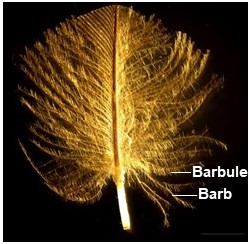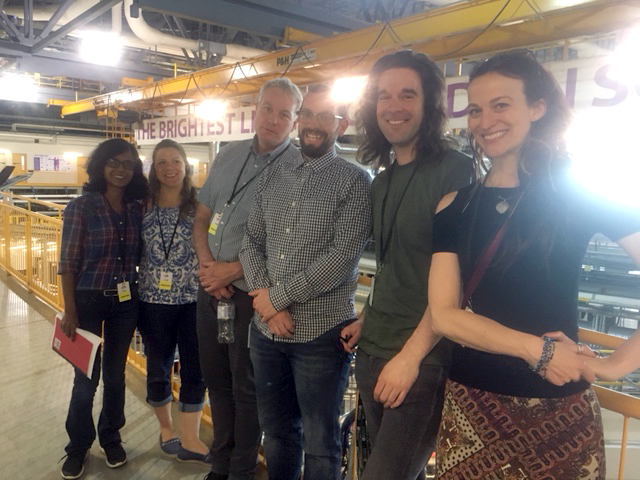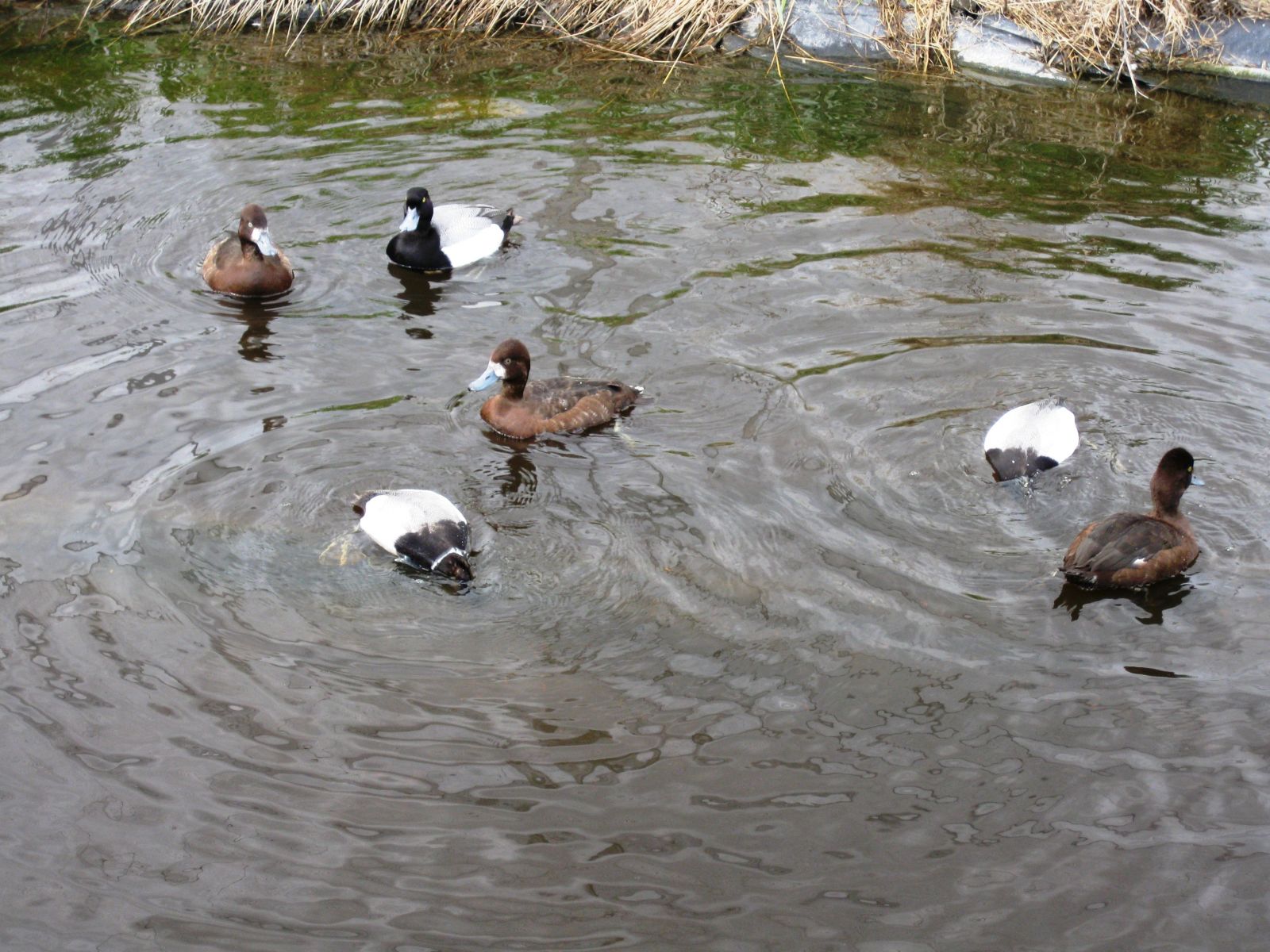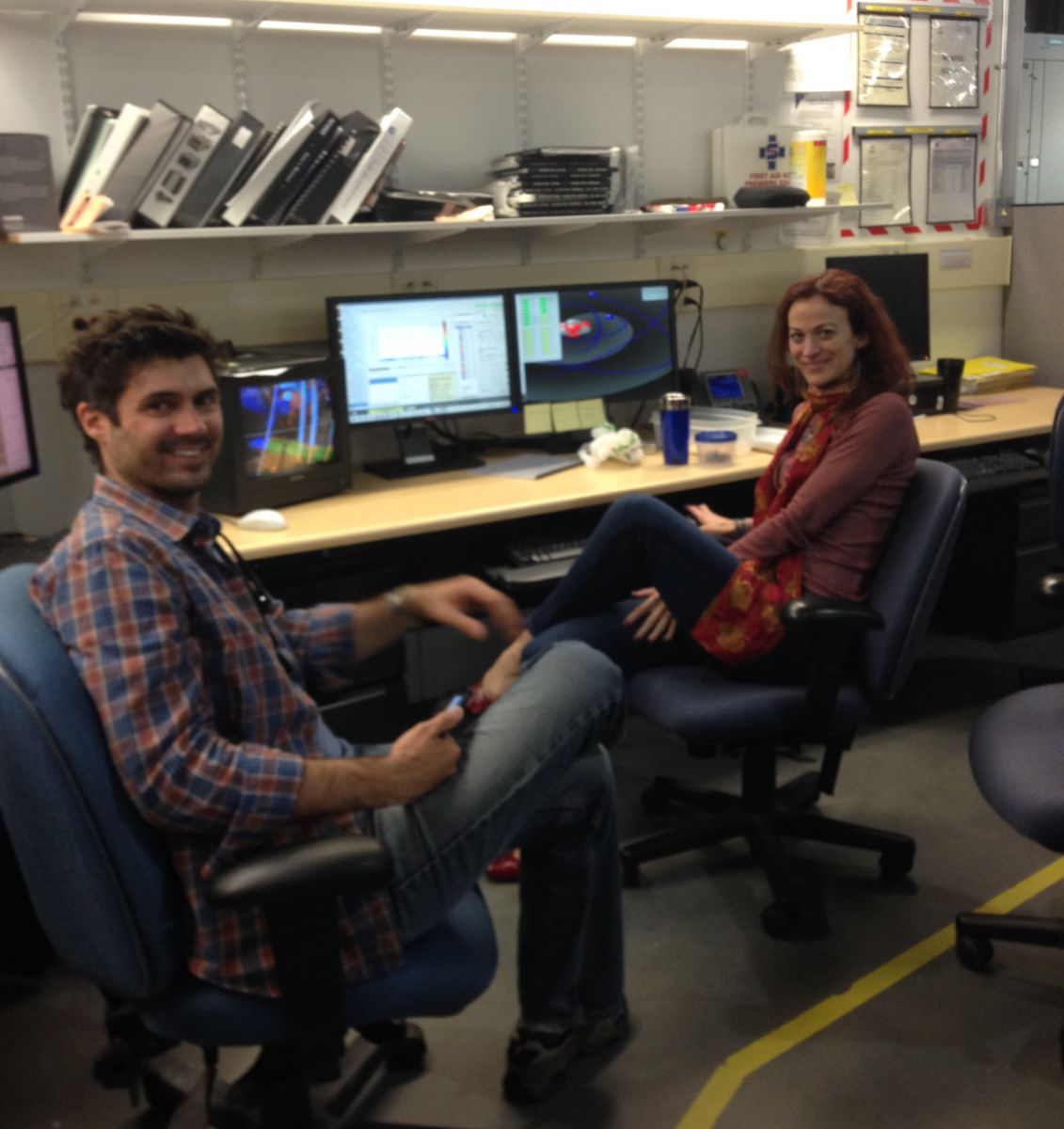Mapping metals in feathers
University of Saskatchewan and Environment and Climate Change Canada researchers have mapped metals in bird feathers, a technique that could help make environmental monitoring less destructive.
By Victoria MartinezZinc distribution map of a bird feather.
Synchrotron technique promising for tracing metals in nature
SASKATOON – University of Saskatchewan (USask) and Environment and Climate Change Canada (ECCC) researchers have mapped metals in bird feathers, a technique that could help make environmental monitoring less destructive.
In a recent paper published in X-ray Spectrometry, researchers used the Canadian Light Source (CLS) synchrotron at USask to examine the level and distribution of zinc in feathers from birds that were fed high-zinc diets.

“The same technique could be applied to toxic metals like mercury, even at low concentrations,” says Agriculture and Agri-Food Canada scientist Fardausi Akhter. “You could just take a feather from the bird and be able to show if it was exposed to toxic metals present in the environment.”
Akhter, a toxicologist interested in applying synchrotron techniques to environmental questions, first started working on this project with Graham Fairhurst, a USask avian ecophysiologist, when they were both working as postdocs supervised by Catherine Soos. Soos is a wildlife health specialist and research scientist at ECCC, and adjunct professor at USask (Department of Veterinary Pathology, Western College of Veterinary Medicine), whose research focuses on investigating impacts of large-scale environmental changes on wildlife health. Her team often uses feathers as tools to evaluate exposure to toxic metals, and impacts of exposure on health of wild birds.
More and more, ecologists are using feathers to measure exposure to toxic metals in the environment. Since feathers are replaced seasonally, they can provide insight into the changes in environmental toxins directly, without any harm to the animal. Further, the synchrotron technique leaves the feather intact, unlike traditional techniques that require the sample to be pulverized to see the quantity of the element.

“Traditionally, exposure to heavy metals or trace elements is measured in samples of homogenized tissues, blood, or whole feathers,” says Soos. “This provides valuable information, but when it comes to feathers, it was still unclear how or where metals are distributed within the feather.”
They turned to synchrotron techniques to investigate feather structures at a scale of a thousandth of a millimeter and to “learn more about potential physiological mechanisms associated with trace element deposition within feather microstructures,” says Soos.
“Using the synchrotron gave us the opportunity to look into the feather in its original condition. We can look into exactly where the zinc is, down to the barbule,” says Akhter. A barbule is the sub-unit of a feather’s barb, and can be identified on the micron scale.
“For this question, I don’t know if any other tool would have allowed us to do this – to look at the structures within something as tiny as a barbule,” says Fairhurst. In fact, the barbules were where zinc was most heavily concentrated.
Previous research had shown that, like hair in humans, feathers can act as a sink for chemicals in the body, which in turn can contribute to the bird’s colouration and signaling, potentially affecting communication.

“Zinc came up as nutritionally important, and it has a connection to melanin, which is involved in colouration of feathers,” says Fairhurst. “It can also be considered an emergent pollutant and could be problematic in some environments.”
Using a technique called X-ray Fluorescence Mapping (XRF) at the CLS, the researchers showed that the darker areas of feathers contain more zinc, a strong sign of the relationship between the birds’ pigmentation and diet. Melanin produces deep auburn-like reds, browns and blacks, rather than the bright colours some birds display.
“Because of the presence of these metals in the feather, the bird is able to form melanin pigment molecules that contribute to these colours, which is very important for mating purposes,” says Akhter.
What this means for environmental pollution’s effect on mating and other feather-based communication tools in birds has yet to be explored, but the team did study how elevated zinc exposure affects its concentration in feathers. To do so, collaborator Karen Machin, a USask professor, raised birds with higher levels of dietary zinc to compare.
As expected, the birds with more zinc in their diets also had more zinc in their feathers, a result with promising implications for environmental monitoring.

“The VESPERS beamline at CLS is an incredibly powerful tool, and the scientists there are really a part of the team,” says Akhter, whose work on these and other questions continues.
The researchers have many further avenues for research planned, particularly in developing XRF mapping techniques for looking at other contaminants in birds. Using the same techniques, they are currently comparing levels and distribution of multiple toxic metals in the feathers of tree swallow nestlings that developed in the oil sands region of Alberta, to those at reference sites.
Akhter F, Fairhurst GD, Blanchard PER, Machin KL, Blyth RI, Thompson J, McLeod J, Feng R, and Soos C. Experimental variation in the spatial deposition of trace metals in feathers revealed using synchrotron X-ray fluorescence. X-Ray Spectrometry 2020;1–9. https://doi.org/10.1002/xrs.3140
Additional thanks to Jamille McLeod (ECCC), and VESPERS beamline scientists Dr. Peter Blanchard and Dr. Renfei Feng. The authors would also like to thank Drs Julie Thompson and Rob Blyth, for initial experiments at the CLS. Akhter was at the University of Saskatchewan at the time of this research.
For more information, contact:
Victoria Martinez
Communications Coordinator
Canadian Light Source
306-657-3771
victoria.martinez@lightsource.ca
